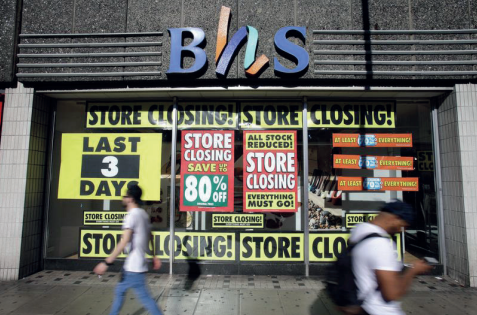October 2020
Estimates of the tax gap need to be improved, says Prem Sikka.
Here he explains why.
Between April and June the UK economy shrank by 20.4% compared with the first three months of the year and is officially in recession. One way of reviving the economy is by reducing inequalities and boosting the purchasing power of the masses through redistribution of income and wealth.
The conventional wisdom, not necessarily shared by advocates of modern monetary theory, is that tax revenues are crucial for redistribution and wealth transfers. However, this project is continuously hampered by leakage of tax revenues.
The tax gap
The term ‘tax gap’ is frequently used to refer to the leakage of tax revenues. It is the difference between the amount of tax that should, in theory, be paid to Her Majesty’s Revenue and Customs (HMRC), and what is actually paid. The tax gap may arise from avoidance, evasion, arrears, errors, and a variety of other reasons.
For 2018- 19, it is estimated to be around £31bn. For the previous decade, it was estimated to be around £34-35bn a year. HMRC’s model is challenged by others and they estimate tax gap to be between £58.6bn and £122bn a year. Despite the methodological differences of various models, these are, at best, ball-park figures.
The measurement of tax gap is complicated by related party and intragroup transactions which shift profits. This can be illustrated by a couple of examples.
Related party transactions
BHS, a major retailer, collapsed in 2016. In December 2001, it sold a number of its properties to Carmen Properties Limited, a company registered in Jersey, for around £106 million. The properties were immediately leased back to BHS in return for annual rent payments.
Lady Green, the spouse of BHS CEO Sir Philip Green, was the ultimate beneficial owner and sole director of Carmen. She also owned most of the shares in BHS. Therefore, the sale and leaseback transaction was between companies under the control of the Green family. Over the lifetime of the sale and leaseback agreement (2002-2015), BHS paid £153 million in rents to Carmen.
These rents were a tax deductible expense and reduced the UK corporation tax liabilities of BHS. The profits of Carmen were not taxable in Jersey as corporate taxes are normally levied on profits made on the Island.
Carmen paid out its profits as dividends to its beneficial owner Lady Green, who was resident in Monaco and not liable to pay income tax on the dividends. All transactions were perfectly legal.
Intragroup Transactions: The Case of Intragroup Debt
From December 2006 to March 2017, Thames Water was owned by Macquarie Bank based in Australia. For 11 years Thames operated through a labyrinth of companies, with some registered in the Caymans.
Thames Water was loaded with intragroup debt through entities in the Cayman Islands and elsewhere. Its debt ballooned from about £2.4 billion to £10 billion and interest payments swelled the charges for customers. For the period 2007 to 2015, the company paid £3.186 billion in interest to other entities in the group alone. This would have been paid without deduction of any withholding tax as the UK is a party to international tax treaties, which facilitate the payment of gross amounts to most foreign-resident companies and individuals.
Entities in the Caymans and other low/no tax jurisdictions would have received the amounts tax free. At the same time, Thames Water would have been able to claim a tax deduction for the interest payments in the UK and reduce it corporation tax liability. It paid about £100,000 in corporation tax for the period 2007 to 2016. Macquarie and its investors averaged returns between 15.5% and 19% a year.
Conclusion
Tax revenues can make a qualitative difference to people’s lives but estimates of the tax gap are difficult as numerous arrangements are not captured by headline statistics.
The relevant transactions often have the appearance of normal, legal and commercial transactions and can only be unravelled by detailed investigation and taxed, if the law permits it.
Tax avoiders/evaders do not volunteer information about their practices and frequently hide behind the cloak of confidentiality. Company accounts do not provide information about tax avoidance strategies used to reduce tax bills. In this vacuum, HMRC needs to increase the number of investigations.
• Prem Sikka is Professor of Accountancy at the University of Sheffield.




